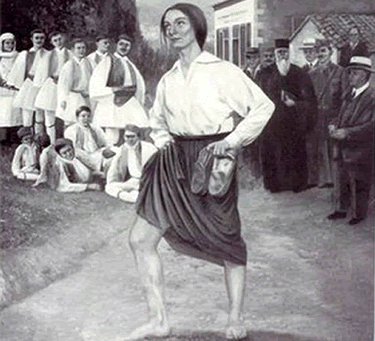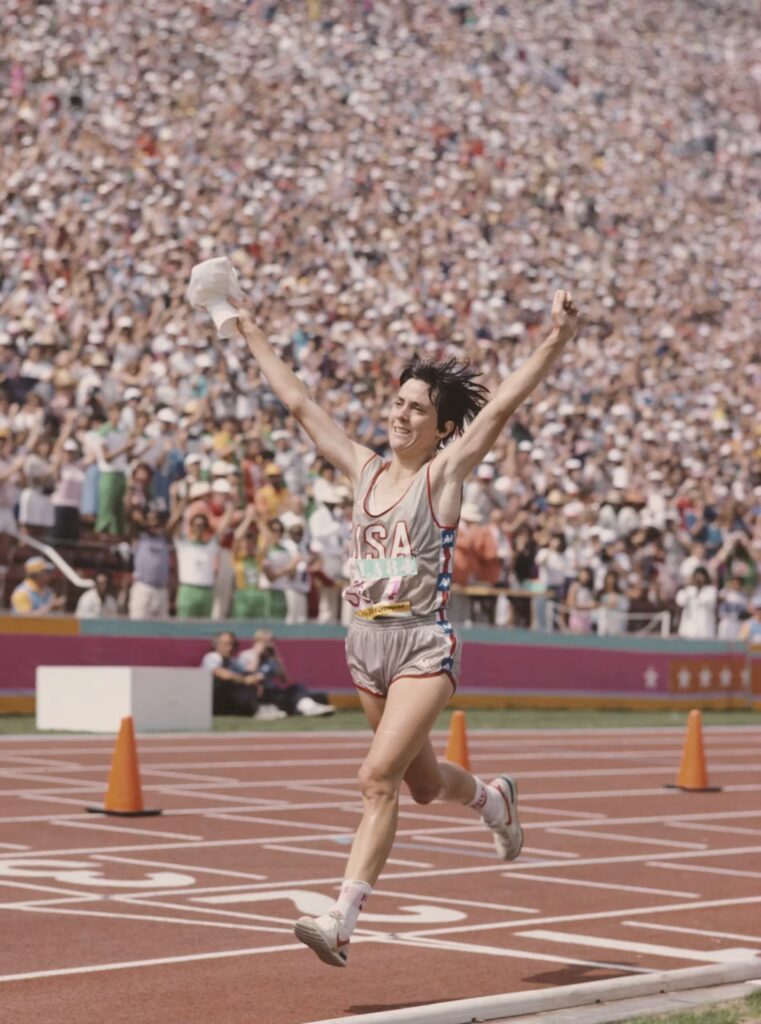
The 2024 Paris Olympics marks a historic milestone for the women’s marathon, as it will close the Summer Games for the first time. This represents a major shift from past Olympics, where the spotlight was primarily on the men’s race.
Stephen Granger, bird story agency
The women’s marathon will, for the first time in the history of the Olympics, bring down the curtain for the Summer Olympic Games in Paris, marking a gender milestone in the history of the Games.
Usually, the men’s marathon provides the climax of the Summer Games and together with the Men’s 100m, is regarded as the blue riband event of the competition. But this year the gender roles have been reversed, allowing the women to take centre stage.
Women’s participation in the greatest sporting event on the planet traces back to 1896 when 30-year-old Greek mother Stamata Revithi attempted to join the first modern Olympic Marathon in Greece. Despite her efforts, women were barred from competing in the marathon for another 88 years.
Revithi had walked from her home to the start of the race in the town of Marathon, arriving the day before the start, where she attracted the attention of reporters and the support of the Mayor of Marathon, who provided board and lodging for her in his home.
But the (male) organising committee barred her participation. Undaunted, she ran the full course (40km) the day after the race, with the town’s mayor, teacher and city magistrate signing a statement confirming her starting time.
Her 5 hr 30 min compared favourably with many of the official male competitors, where only 9 out of a field of 22 were able complete the race the previous day.
Misguided science, suggesting women lacked the strength for marathons, coupled with entrenched misogyny, kept the Olympic Marathon exclusive to men for nearly nine decades. It wasn’t until the 1984 Los Angeles Games that American Joan Benoit shattered this barrier, becoming the first woman to win Olympic gold in the marathon.

Benoit’s time of 2:24:52 was faster than the winning times of the first twelve (male) Olympic Marathon gold medallists and it was only in 1952 when the Czech Emil Zatopek, recognised as one of the all-time greats, won in a faster time – and then by just over a minute.
A little more than one hundred years before Revithi had her entry refused, early on 5 October 1789, a young woman in the east of Paris struck a marching drum among a group of women at a town market. Infuriated by the chronic shortage and high price of bread, more and more women joined the procession until almost ten thousand assembled outside the City Hall at Hôtel de Ville, where they demanded bread and arms.
Their subsequent march of around 20 km to the Palace of Versailles, forced the royals to return to Paris and became one of the most significant events of the French Revolution. And the route for next month’s Olympic Marathons on 10 and 11 August retraces the steps of those marchers, starting at Hôtel de Ville before heading west to Versailles.

Unlike the revolutionary marchers, who paused at Versailles to ensure their demands were acted upon, the marathoners would loop back east to complete the second half of the race before finishing at the Esplanade des Invalides, east of the iconic Eiffel Tower.
The 1789 march to Versailles covered just over 20km and took six hours. The elite marathoners are expected to run through halfway, within sight of the Palace of Versailles, in just over an hour.
The 2024 Paris Olympic Marathon, 128 years after Greek water-carrier, Spyridon Louis, won gold in Athens in 2:58:50, recalls the city’s struggle history and the challenging route topography and warm conditions expected to prevail suggests this year’s edition will prove a physical challenge of considerable proportions.

Far from the ‘flat, fast and cool’ conditions associated with major city marathons, the Olympic Marathon often takes place along more challenging routes, a true championship race where position, rather than time, is all important.
The relatively slow Olympic Marathon records bear this out. Kenyan Samuel Wanjiru’s 2:06:32 which won gold in Beijing in 2008 (an exception to the rule, being almost two minutes faster than the next best) and Ethiopian Tiki Gelana’s 2:23:07 in London in 2012 are well off times which would typically win any of the world’s Marathon Majors.
These courses typically are designed to showcase the host city’s most striking features and are seldom designed for speed. The marathon champions in Paris next month will have to overcome searching tests of strength and endurance, including 436m of ascent (with a maximum gradient of 13,5%), and temperatures in excess of thirty degrees Celsius.
The athletes will pass through nine of the Île-de-France region’s districts (Paris, Boulogne-Billancourt, Sèvres, Ville d’Avray, Versailles, Viroflay, Chaville, Meudon and Issy-les-Moulineaux), against a backdrop of some of Paris’ most well-known monuments, iconic parks and forests, and the majestic Palace of Versailles site.

As tough as the marathon route in Paris might be, the spirit of Stamata Revithi will celebrate that women are exposed to the same marathon rigour of that of their male counterparts. Not only that, according to scientific research women are more likely to flourish under such adversity than their male counterparts.
Yet, it is the women’s marathon which will bring down the curtain on the XXXIII Olympiad come the second weekend in August.
With athletes of the calibre of defending champion Peres Jepchirchir of Kenya and her multi-Olympian compatriot Helen Obiri, Ethiopians Tigist Assefa and World Champion Amene Beriso, Ugandan Stella Chesang, American Emily Sisson and South Africa’s Gerda Steyn in the mix the race is set to be one of the Games highlights.
bird story agency


